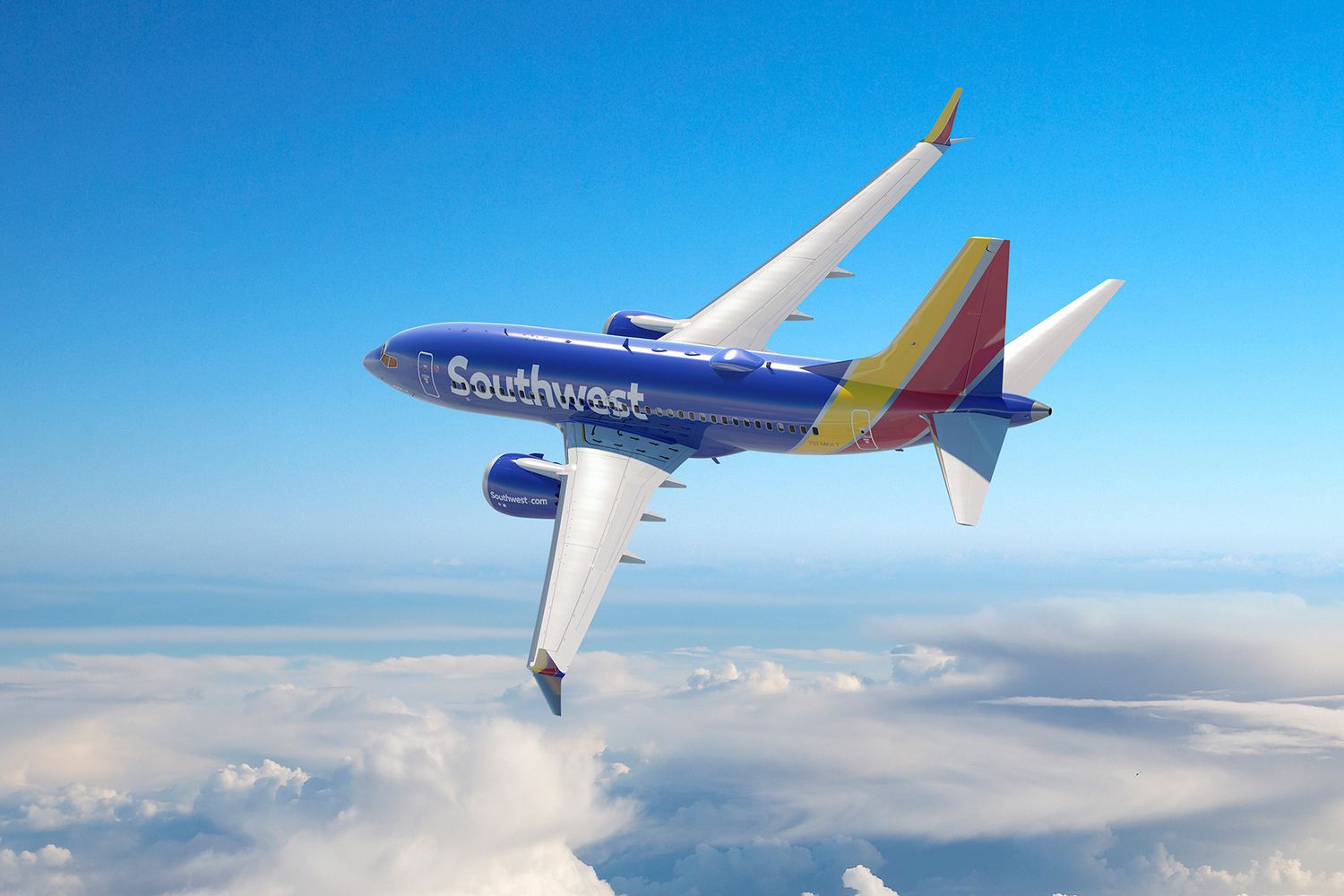Southwest Airlines has recently added flight prices and purchasing options to Google Flights but it’s the worst idea the carrier could implement.
If you are considering booking travel or signing up for a new credit card please click here. Both support LiveAndLetsFly.com.
If you haven’t followed us on Facebook or Instagram, add us today.
Southwest Adds Pricing, Booking Options To Google Flights
Southwest Airlines made waves a few weeks ago when they joined nearly every other airline on the planet offering flight pricing on the platform. Southwest resisted showcasing its fares outside of its own website until recently. Prior to this point, Southwest Airlines flights were added to the service to showcase a flight was present with its flight time but not the price and no option to book flights on the nation’s largest domestic carrier.
Interestingly, the ability to use Google Flights to search for Southwest fares is not only enabled but also to select a fare class (Wanna Get Away, Business Select, etc.) which then turns into a trackable link before dropping guests into the payment page for Southwest Airlines on its own website.
Google Flights is a favorite for many brand-agnostic frequent travelers. It’s easy to save money with Google Flights, set alerts for a specific date or route, and set alerts in the event of price drops. It’s built on ITA Software, a frequent flyer darling for decades for its extensive detail and uncommon combinations. Google simplified the data and made it actionable in a way that ITA couldn’t or didn’t execute.
They Had The Hardest, Best Strategy
Southwest was an early pioneer to selling airfare on the internet but they did so differently. Rather than compete with all the other airlines on price, Southwest brought clients to their website alone to shop for flights. It was harder to train customers to also shop Southwest along with other aggregators. But when they did, they often found better prices in the early days and many flyers stopped at Southwest first meaning that the airline, who once famously competed with driving, was again not competing with other airlines.
And flyers love the carrier. They loved it more when the other airlines moved to a nickel-and-dime approach with fares and luggage and charging for everything else Southwest still included as standard.
American Airlines, in spectacularly disastrous fashion, is trying to do what Southwest conquered years ago and bringing clients back to start their shopping with American first. However, in the tradition of the carrot/stick method, Southwest used the carrot of lower prices flyers couldn’t find anywhere else, and before American even launched its plan had to backtrack by using the stick and penalizing flyers who don’t book direct.
Why It’s A Mistake
Southwest was once the world’s first Low-Cost Carrier, focusing on reducing costs through clever techniques like the 10-minute turn at LAX of all cities, or extreme fleet commonality with its all 737 aircraft which is now a Low-Cost Carrier and Ultra Low-Cost Carrier hallmark.
When Southwest was building its brand, its minimal amenities, non-stop flights, and low prices were its brand. One of Southwest’s strongest features was that flyers could cancel their tickets in favor of an account credit. Then when other airlines started charging for checked luggage and stripped down their product, the once-skeleton operation became the market leader for baseline inclusions.
Now, however, Southwest is often much more expensive than the lowest carrier on a route.
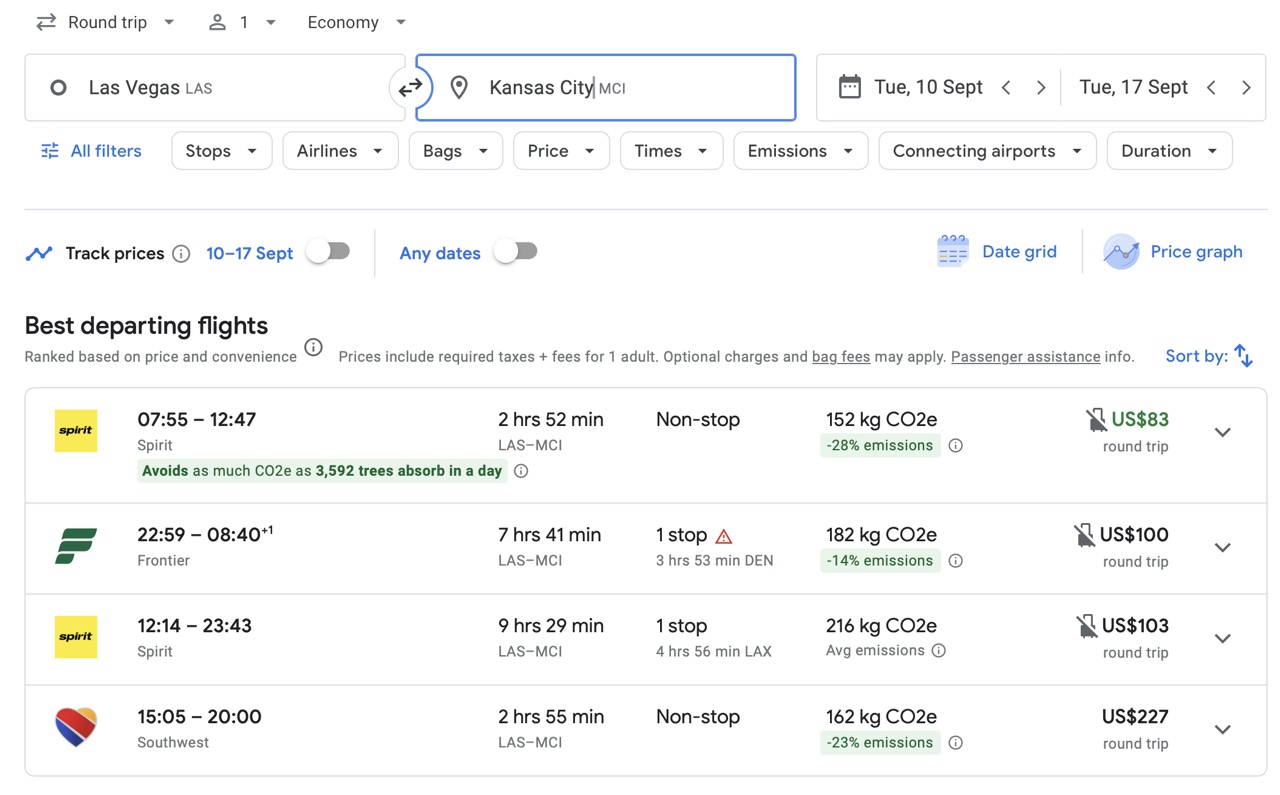

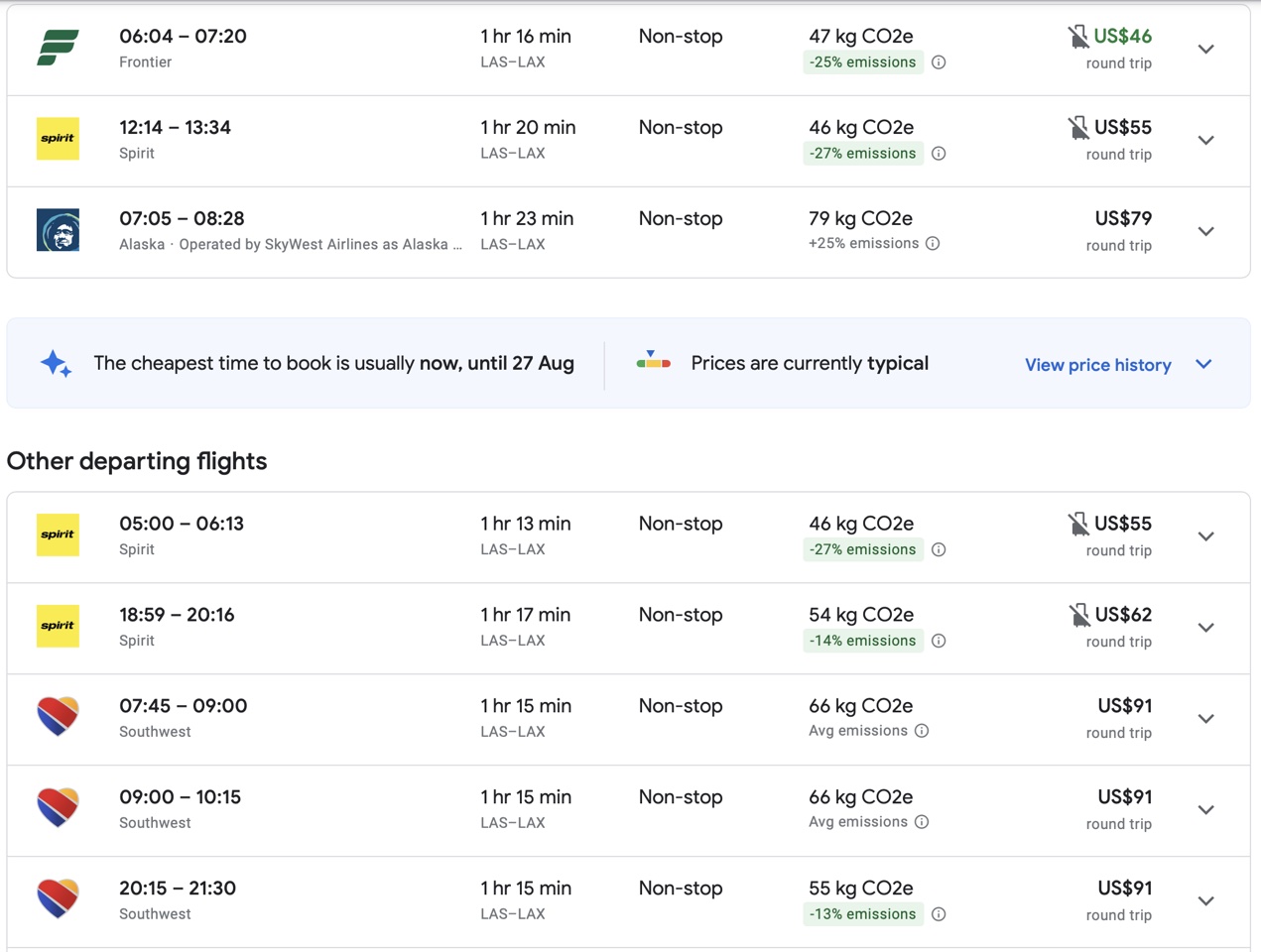
In the above examples, the price divergence is extreme. In the Las Vegas-Los Angeles example, a short 75-minute flight often for quick weekends away may not require two checked pieces of luggage, Alaska is a great alternative and 15% cheaper. For those who can head out in a backpack or overnight bag, Spirit is almost half-price.
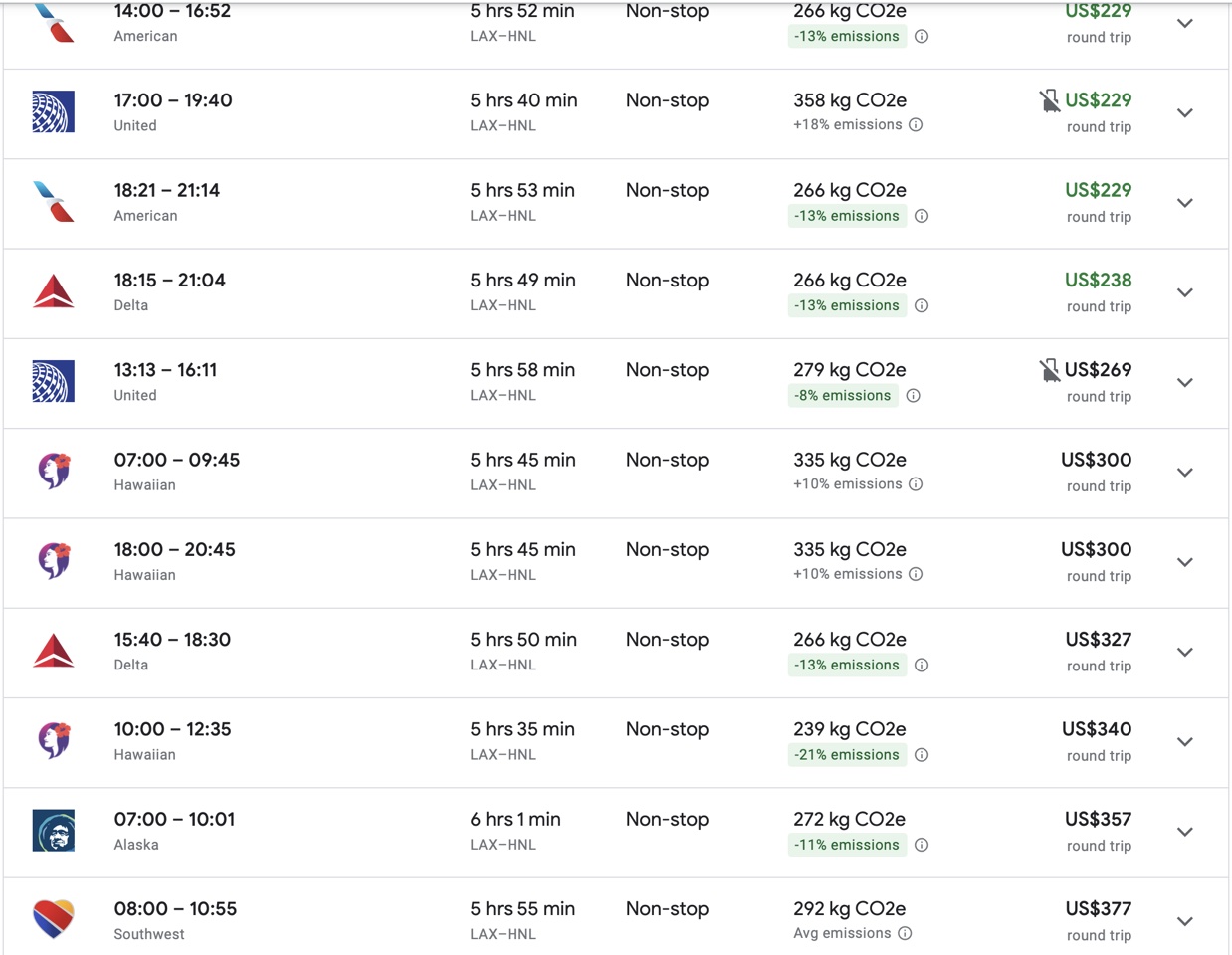
Here’s a case of Pittsburgh to Orlando wherein Southwest is competitive among peers in the legacy airline market. But as indicated, some of these competitors charge for carry-ons (or disallow in Basic Economy.) Spirit is probably more expensive if checking two full bags or traveling with a carry-on and a checked bag as well, so Southwest is probably even with Southwest in that regard.
But of note, this also doesn’t help Southwest where it should. In the below example, let’s assume that a flyer dismisses Spirit. Southwest has a few key advantages. First, it’s clear they don’t charge for carry-ons, but the inclusion of checked luggage should have Southwest standing above the rest. Second, it’s a nonstop flight but because it is $9 more expensive roundtrip, it still shows up well down the list. If Google is going to point out to flyers that a fare doesn’t include a carry-on, it should point out included checked luggage which will help consumers decide the best value for them. Without this, Southwest’s product appears to be the same as the rest, but it’s clearly not.
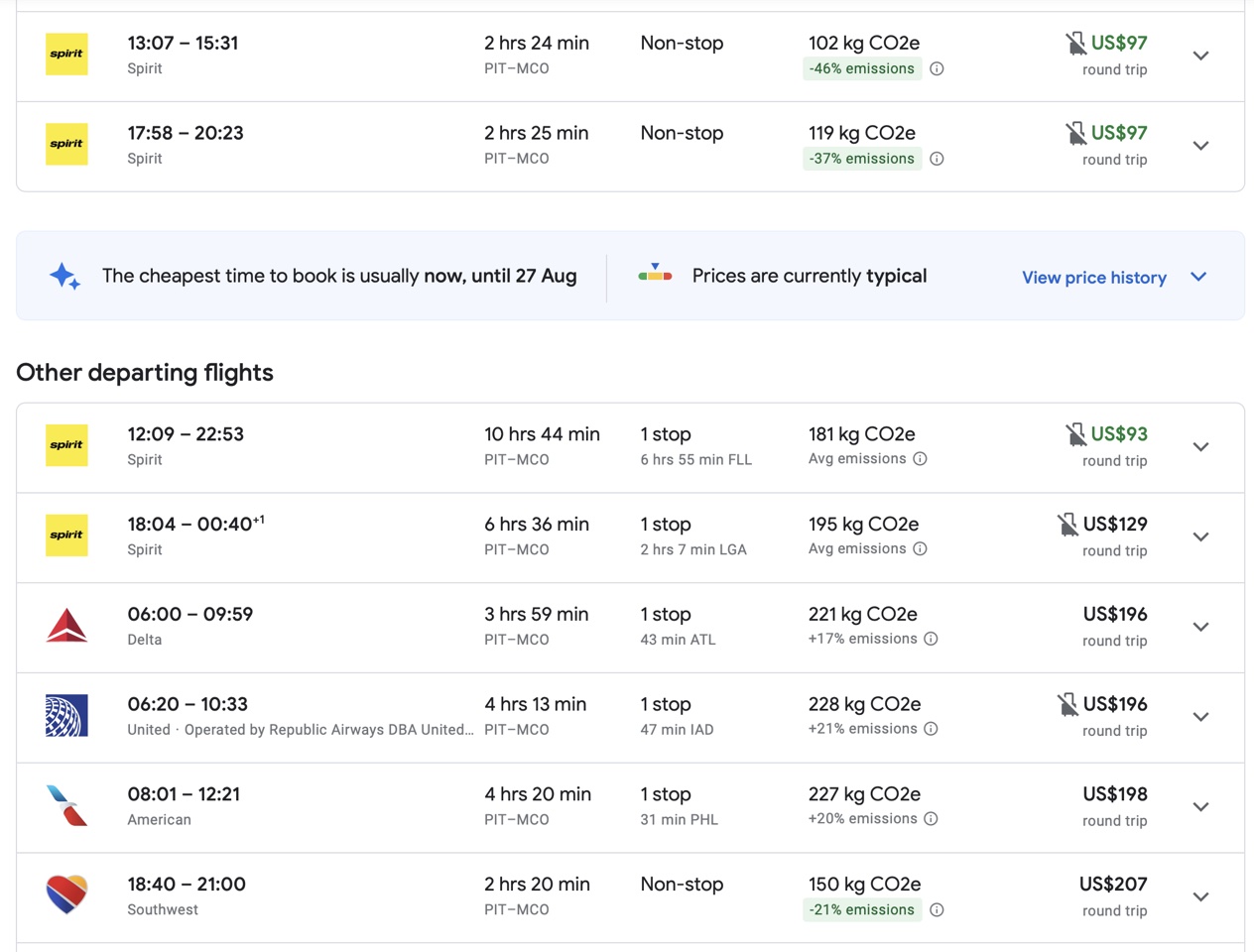
Southwest should be the far and away winner on flights to Chicago at even money to both American and United on nonstop but with more features. Yet Google essentially displays them all as equals.

One area where Southwest succeeds on Google Flights is that upon selection, it showcases a variety of fare options with upsells. Clicking on any of those will drop visitors directly into the payment screen for Southwest, a smart choice.
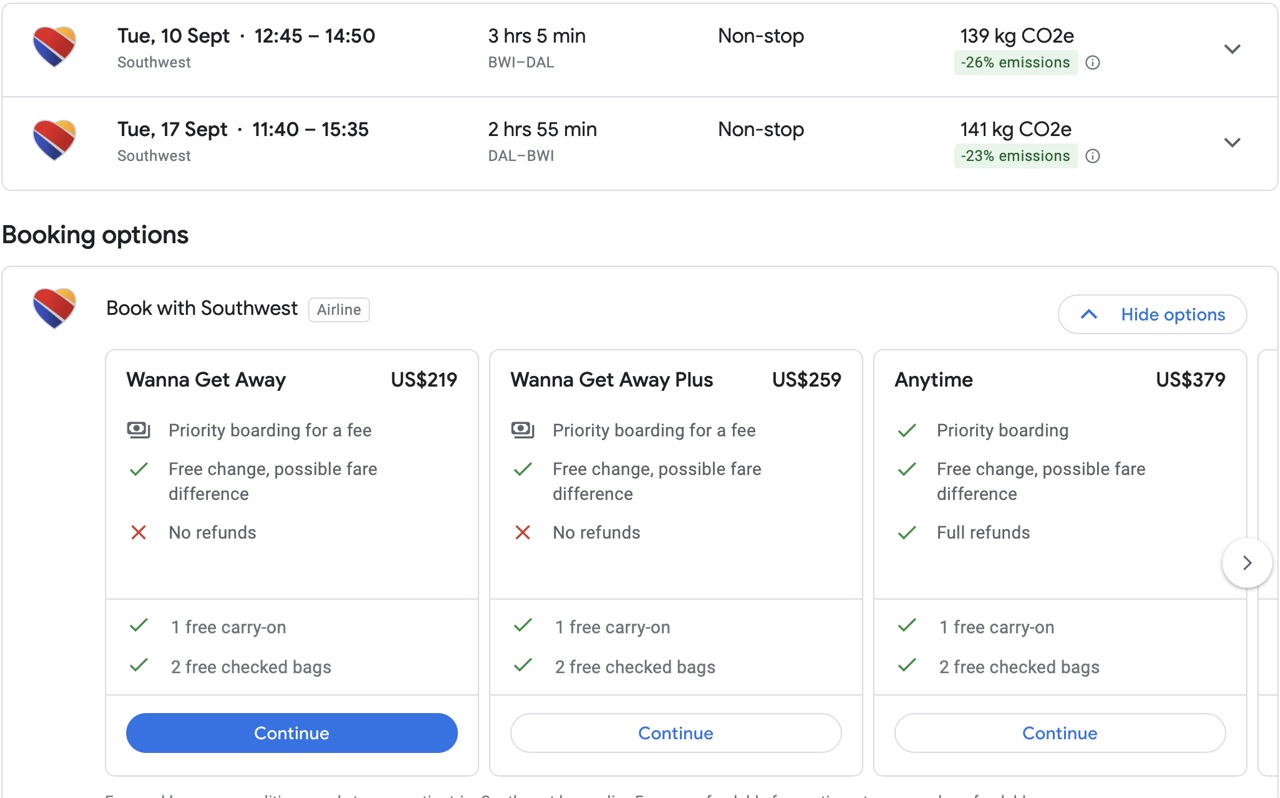
Other Challenges At Southwest Airlines
Activist investors are calling for the head of the CEO. An important indicator in the airline industry is RASM (Revenue by Available Seat Mile), a way of comparing large and small carriers on a similar metric. For the current quarter, Southwest has revised RASM down 4.5% as opposed to a projected 3.5%. And, of course, Boeing isn’t helping matters with 737 MAX delivery issues and consumer confidence in the type it flies exclusively.
Conclusion
At a moment when American Airlines is trying to replicate Southwest’s success in controlling more of the user experience, Southwest is moving fares into a competitive space when it didn’t have to. Worse, Southwest spent countless marketing dollars to let flyers know that “Bags fly free” only to align themselves on Google Flights where such information isn’t prevalent. Those consumers who may have assumed Southwest was competitive will now see just how much more expensive the carrier is and might ask themselves if they need two checked pieces of luggage and what that’s costing them. Flyers that were ambivalent to Southwest might now categorize it as more expensive and dismiss it altogether when, before, they might have shopped Southwest too and been sold a ticket.
What do you think?

